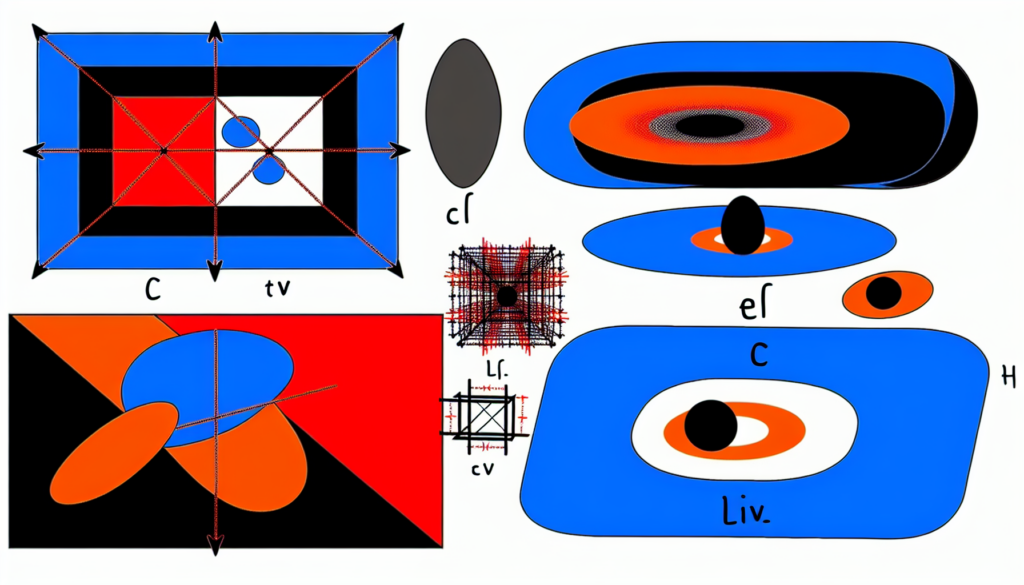Unraveling the 2024 Information Paradox: Insights from Theoretical Physics Discoveries
The Karch-Randall Braneworld Los Angeles: A New Perspective on Black Hole Information Preservation
The city of Los Angeles, known for its innovative spirit, is now at the forefront of a theoretical physics breakthrough that could change our understanding of black holes. The Karch-Randall Braneworld model, a brainchild of local researchers, offers a fresh perspective on the long-standing problem of black hole information preservation.
This model suggests that the information we thought was lost in black holes could actually be preserved on a brane—a boundary that exists within the higher-dimensional space. This concept has sparked excitement across the physics community, as it aligns with the principle that information cannot be destroyed according to quantum mechanics.
If the Karch-Randall model holds true, it would signify a monumental shift in our understanding of the universe, positioning Los Angeles as a hub for cutting-edge physics research.
Multiverse Theory Research LA: Exploring Inter-Universal Information Transfer
In Los Angeles, a city that thrives on pushing the boundaries of creativity and science, researchers are delving into the intriguing realm of multiverse theory. This research examines the possibility of information transfer between multiple universes, a concept that could redefine our perception of reality.
The idea that our universe is just one of many in a vast multiverse opens up new avenues for understanding information flow. Could it be that information escapes from our universe and finds refuge in a parallel one? The implications of such a discovery would be profound, offering potential explanations for phenomena that currently elude our grasp.
As the city continues to invest in this groundbreaking research, Los Angeles is poised to become a nexus for multiverse theory exploration.
Information Paradox Solution 2024: How the Karch-Randall Model Reconciles Black Hole Evaporation and Quantum Mechanics
The year 2024 could be a pivotal one for theoretical physics, as the Karch-Randall model presents a potential solution to the information paradox. This paradox, which has puzzled scientists for decades, involves the apparent contradiction between black hole evaporation, as described by Stephen Hawking, and the principles of quantum mechanics.
According to Quanta Magazine, the debate hinges on whether the laws of physics allow for the complete destruction of information. The Karch-Randall model suggests that instead of being lost, information is conserved on a brane within the black hole, potentially reconciling these conflicting theories.
As Los Angeles-based physicists continue to refine this model, the solution to the information paradox may soon be within reach, marking a historic moment in the annals of theoretical physics.
Implications of Braneworld Dynamics on the Future of Theoretical Physics and Our Understanding of Reality
The exploration of braneworld dynamics has far-reaching implications for the future of theoretical physics and our very conception of reality. This innovative approach to understanding black holes suggests that the fabric of our universe is much more complex and interconnected than we ever imagined.
The notion that information could be preserved in higher-dimensional spaces challenges our conventional wisdom and opens up exciting possibilities for future research. It compels us to reconsider the fundamental laws that govern our existence and could lead to revolutionary advancements in technology and cosmology.
As we stand on the cusp of these transformative discoveries, it is clear that Los Angeles will play a pivotal role in shaping the trajectory of theoretical physics in the years to come.
“Surviving a black hole sounds impossible, but there may be ways to avoid getting stretched out of shape. Black holes are famous for two things: sucking everything in and stretching it out until it forms long strings known as spaghetti. But could you actually survive falling into one? According to recent research, the answer might be yes.”
